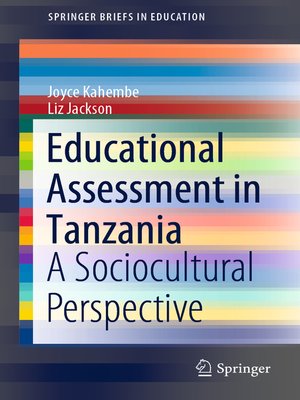Educational Assessment in Tanzania
ebook ∣ A Sociocultural Perspective · SpringerBriefs in Education
By Joyce Kahembe

Sign up to save your library
With an OverDrive account, you can save your favorite libraries for at-a-glance information about availability. Find out more about OverDrive accounts.
Find this title in Libby, the library reading app by OverDrive.



Search for a digital library with this title
Title found at these libraries:
| Library Name | Distance |
|---|---|
| Loading... |
This book examines teachers' conceptions and practices of assessment in Tanzania. Adopting a sociocultural perspective, it reveals how Tanzanian teachers understand the role of assessment in relation to their classroom practices, community and other factors. The book determines that although teachers in Tanzania generally consider assessment to be useful for evaluating and monitoring learning, improving student performance and for accountability, their assessment practices are rarely seen as directly supporting student learning; it is not that teachers do not know how to implement the mandated assessment reforms. Instead, they are reluctant to adopt and embrace the reforms because they consider them to be contradictory to their teaching roles, and overly burdensome, if not implausible, given the physical, economic and cultural contexts of teaching and learning.
This book argues that improving traditional assessments, rather than radically transforming them, canbe more effective for cultivating practices that suit the physical, political, economic and cultural contexts of Tanzanian schools. Highlighting the significance of sociocultural factors in educators' professional practices, while also illustrating the major challenges in implementing global reform agendas in diverse contexts, it is a valuable resource for educators and scholars interested in development and educational reform in African contexts.
This book argues that improving traditional assessments, rather than radically transforming them, canbe more effective for cultivating practices that suit the physical, political, economic and cultural contexts of Tanzanian schools. Highlighting the significance of sociocultural factors in educators' professional practices, while also illustrating the major challenges in implementing global reform agendas in diverse contexts, it is a valuable resource for educators and scholars interested in development and educational reform in African contexts.







